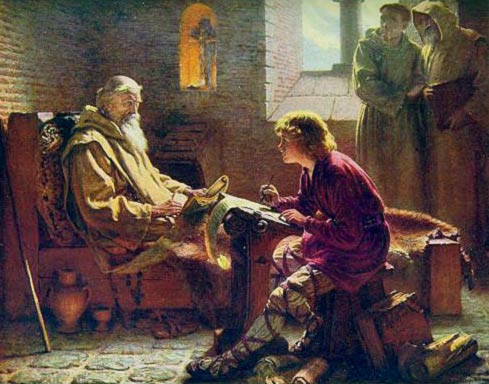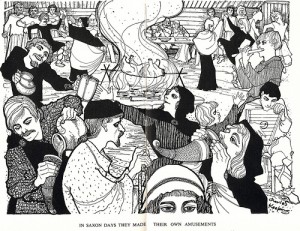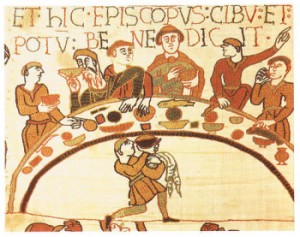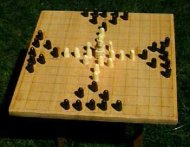
The Exeter Book of Riddles
The Exeter Book, also known as the Codex Exoniensis, is a tenth-century anthology of Anglo-Saxon poetry. The book was donated to the library of Exeter Cathedral by Leofric, the first bishop of Exeter, in 1072. Of the 131 pages that it consisted off, 8 are lost. Despite this, the Exeter Book is the largest known collection of Old English Riddles still in existence.
The Anglo-Saxons loved poems and Riddles. It was certainly one way to pass the long dark nights. In particular they seemed to enjoy rather naughty riddles which had two meanings – a real one and a much more fun rude one. Naturally the idea was to work out the real meaning with out making the mistake of falling for the obvious one. Here are some examples. The answers are at the bottom of the page.
The numbers here are the numbers generally associated with the riddles
74.
I’m a wonderful thing, a joy to women,
I’m a wonderful thing, a joy to women,
to neighbors useful. I injure no one
who lives in a village save only my slayer.
I stand up high and steep over the bed;
underneath I’m shaggy. Sometimes ventures
a young and handsome peasant’s daughter,
a maiden proud, to lay hold on me.
She seizes me, red, plunders my head,
fixes on me fast, feels straightway
what meeting me means when she thus approaches,
a curly-haired woman. Wet is that eye.
The clue is in the lines I injure no one …. save only my slayer and Wet is that eye. Any ideas?
75.
Splendidly it hangs by a man’s thigh,
under the master’s cloak. In front is a hole.
It is stiff and hard; it has a goodly place.
When the young man his own garment
lifts over his knee, he wishes to visit
with the head of what hangs the familiar hole
he had often filled with its equal length.
Something specifically designed to fit just one hole.Check the answers at the bottom.
76.
I have heard of something wax in a corner,
swell and pop, lift up the covers.
A proud-minded woman seized with her hands
that boneless thing, a prince’s daughter;
covered with her dress the swelling thing.
Think cooking.
77.
A youth came along to where he knew
she stood in a corner. Forth he strode,
a vigorous young man, lifted up her own
dress with his hands, thrust under her girdle
something stiff as she stood there;
worked his will; both of them shook.
A thane hurried up, useful at times,
a capable servant; nonetheless he grew tired
from time to time, though strong at first,
weary with work. Beneath the girdle
there began to grow what often good men
love heartily and buy with money.
A piece of equipment used to make commonly consumed produce.
The language in these riddles is sometimes clumsy in translation. As with all puns and riddles they often work best in the original language. But often they give us a hint of a clever use of language that indicates that despite living in what we call the Dark Ages these monks and scribes had both a well developed sense of humour but also knowledge of irony and pun. Ok then what about those answers?
74. Onion 75. A key 76. Bread dough 77 Butter Churn.
There are more of these riddles – I may return to the subject.






